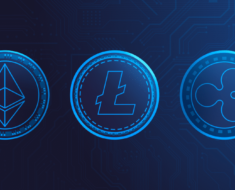Kirill Bryanov wrote a Cointelegraph article entitled “Crypto Remains Unregulated in Russia — Lots of Talk but No Action”. For the non-crypto enthusiast, this might not seem like important news. However, active crypto investors see a very telling story.
The advent of crypto in 2009 went rather unnoticed. It wasn’t until prices reached the thousands that waves were created in the tech sector. There were very few cryptocurrencies back then. Even Ethereum hadn’t popped its head up. Sure, when the price of Bitcoin was in the hundreds of dollars, it was mentioned in mainstream financial news. At the time, it was nothing more than a novelty.
Today, you will find powerful governments actively engaged in the crypto discussion. China, India and North Korea have actively banned it on multiple occasions. Since Bitcoin is but a piece of software, their actions had no impact other than on traditionally conceived exchanges that were using fiat to provide services.
As more crypto users began to realize what it meant to be in control of one’s own keys, even the lucrative exchanges saw a need to change. Binance is among the most notable international exchanges to transition to a decentralized exchange (DEX). It accomplished this by issuing its own cryptocurrency.
To understand the magnitude of the Binance DEX and coin, consider the reaction to the Chinese threat of regulation that was devoid of timely notification. Since Binance does not operate like a traditional business, the efforts of Chinese regulators were futile.
Remember, the analogy of Bitcoin to a common piece of software? Bitcoin is certainly not common. It is a fully functional ledger that is distributed to anyone with the hardware capability to run it. This is said to be the same objective behind DEXs like Binance.
How does one go about regulating a piece of software? These are the types of questions that anyone seeking to succeed at putting restraints on cryptocurrencies must ask. In the end, such parties will find that they can only join the programming cause. Only through actually reprogramming Bitcoin software is this possible. This is known as a fork.
There have been many forks of Bitcoin, as well as other major blockchains. The next hurdle will then be to encourage mass adoption. Since the power is in understanding the technology, early adopters like Japan and Malta have a significant advantage in the emerging age of independent finance.
Further Reading: https://www.asiacryptotoday.com/laomao-top-chinese-cryptocurrency-influencer
Dil Bole Oberoi





